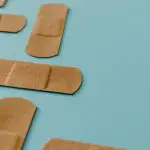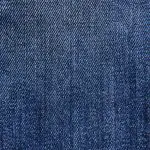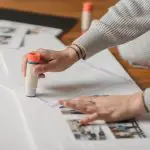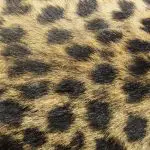So, you've found yourself in a sticky situation with fabric and need the perfect adhesive to save the day. Look no further! In this handy guide, we'll explore the world of fabric glue and help you navigate through the maze of options.
From types of fabric glue to application techniques, we've got you covered. Whether you're a seasoned crafter or a newcomer to the fabric world, this guide will provide you with the knowledge and insight you need to make an informed choice.
No need to stress over which fabric glue works best – we've done the research so you can master the art of adhesion with confidence.
Key Takeaways
- There are different types of fabric glue available, including temporary bonds, permanent holds, flexible and repositionable options, and those that offer a strong and durable bond.
- Factors to consider when choosing fabric glue include adhesive strength, drying time, durability factors, resistance to washing, heat, and wear, and alignment with project requirements.
- Proper application techniques for fabric glue include cleaning fabric surfaces, thoroughly washing and drying fabric, applying glue sparingly with a small, precise applicator or toothpick, and gently pressing fabric pieces together.
- When using fabric glue, it is important to follow care instructions, test durability before heavy use, maintain washability, consider specific temperature and washing requirements, and assess the glue's performance under normal usage.
Types of Fabric Glue
When choosing fabric glue, it's important to understand the different types available to determine which will best suit your project. Fabric glues come in various formulations, each with its own unique bonding strength and drying time.
Some fabric glues are designed for temporary bonds, while others create a permanent hold. The bonding strength of fabric glue can range from being flexible and repositionable to creating a strong, durable bond that can withstand frequent washing and wear.
Drying time is another crucial factor to consider when selecting fabric glue. Some adhesives dry quickly, making them ideal for projects that require a speedy turnaround, while others may require more time to set and cure. Understanding the drying time of fabric glue is essential to ensure that it aligns with your project timeline and requirements.
Factors to Consider
Consider the bonding strength and drying time of different fabric glues to ensure they align with your project requirements. When evaluating fabric glues, it's essential to assess their adhesive strength and durability factors to make an informed decision. Here are key factors to consider when choosing a fabric glue:
- Adhesive Strength: The ability of the glue to form a strong bond between fabric surfaces is crucial. Look for a fabric glue with high adhesive strength, especially if you're working with heavy or thick fabrics.
- Drying Time: The drying time of fabric glue varies across different products. Some glues offer quick drying times, which can be beneficial for projects that require efficiency. However, for intricate or detailed work, a longer drying time may be more suitable to allow for adjustments.
- Durability Factors: Assess the fabric glue's resistance to washing, heat, and general wear and tear. A durable fabric glue will ensure that your project maintains its integrity over time, especially for items that will undergo frequent use or laundering.
Application Techniques
To apply fabric glue effectively, ensure that the fabric surfaces are clean and free of any debris or oils. Proper bonding is crucial for a strong and lasting hold. Before applying the glue, it's essential to prepare the fabric by washing and drying it thoroughly.
Once the fabric is ready, apply the fabric glue sparingly to avoid mess. Use a small, precise applicator or a toothpick to apply the glue along the edges or seams that need bonding. Gently press the fabric pieces together, ensuring even distribution of the glue. Avoid over-saturating the fabric with glue, as this may lead to seepage and mess.
If you're working with delicate fabrics, do a patch test in an inconspicuous area to ensure that the glue won't damage or discolor the fabric. Remember to follow the manufacturer's instructions for the specific fabric glue you're using, as different products may have slightly different application techniques.
Durability and Washability
For ensuring the durability and washability of fabric glued items, make sure to test the fabric glue according to the manufacturer's instructions before washing or subjecting it to heavy use. Following care instructions is crucial for maintaining the strength and integrity of the bond created by the fabric glue.
Here are a few key points to consider:
- Care Instructions: Always follow the care instructions provided by the fabric glue manufacturer. Different glues may have specific temperature or washing requirements to maintain their durability.
- Testing Durability: Before using the fabric glued items extensively, test their durability by gently washing or subjecting them to light wear. This will help you assess how well the glue holds up under normal usage.
- Maintaining Washability: Some fabric glues are designed to withstand multiple washes, while others may have limitations. Be mindful of these washability factors when choosing a fabric glue for your project.
Specialized Fabric Projects
When working on specialized fabric projects, you'll need to tailor your choice of fabric glue to the specific requirements of the materials and the intended use.
For fabric repair, opt for a high-quality fabric glue that's flexible and dries clear to ensure seamless repairs. Look for a glue that's washable and strong enough to withstand frequent use.
When it comes to upholstery projects, choose a fabric glue specifically designed for this purpose. These glues are often formulated to bond well with heavy fabrics and provide a strong, durable hold that can endure the rigors of upholstery use. Additionally, they should be heat-resistant to withstand potential steam cleaning or ironing.
Always consider the weight and texture of the fabrics involved in your specialized project and select a fabric glue that's suitable for those specific characteristics.
Top Recommended Brands
Some crafters find that certain brands of fabric glue work better for their projects than others. When it comes to choosing the top recommended fabric glue brands, it's essential to consider factors such as durability, ease of use, and versatility.
Here are three top recommended brands to consider for your fabric glue needs:
- Aleene's: Known for its strong adhesion and versatility, Aleene's fabric glue is a popular choice among crafters. It's suitable for a wide range of fabrics and is designed to withstand washing and dry cleaning, making it ideal for fabric projects that require durability.
- Beacon Fabri-Tac: This brand is favored for its quick-drying and clear-drying formula, making it perfect for projects that require precision and a clean finish. Beacon Fabri-Tac is also known for its strong bond and ability to adhere to various fabric types.
- Dritz Unique Stitch: Dritz Unique Stitch is a go-to for crafters who need a flexible and machine-washable fabric glue. It's great for hems, seams, and other fabric repairs, offering a reliable and long-lasting bond.
When considering these top brands, it's important to compare their features and consider best practices for your specific project to ensure you make the best choice for your fabric gluing needs.
Frequently Asked Questions
Can Fabric Glue Be Used on Non-Fabric Materials?
Yes, fabric glue can be used on non-fabric materials such as metal and plastic. It's important to choose the right type of fabric glue for the specific material to ensure a strong and lasting bond.
Is Fabric Glue Suitable for Use on Outdoor or Waterproof Projects?
Yes, fabric glue is suitable for outdoor projects and waterproof materials. It provides a strong bond that can withstand exposure to the elements. When using fabric glue for these types of projects, ensure that it is specifically designed for outdoor and waterproof use.
What Is the Shelf Life of Fabric Glue Once Opened?
Once opened, the shelf life of fabric glue depends on proper storage and environmental factors. Store in a cool, dry place and avoid temperature extremes or moisture. Following these guidelines can help extend the shelf life of your fabric glue.
Can Fabric Glue Be Used on Delicate or Sheer Fabrics?
Yes, fabric glue can be used on delicate or sheer fabrics. It's important to choose a gentle formula specifically designed for these types of materials. Be sure to follow the instructions carefully for best results.
Are There Any Safety Considerations When Working With Fabric Glue?
When working with fabric glue, safety precautions are crucial. Ensure proper ventilation, protect your eyes, and be mindful of skin irritation. Always use eye protection and work in a well-ventilated area to avoid any potential risks.
- Tetron Fabric for Marine Applications: Durability and Use Cases - June 18, 2025
- Tetron Fabric for Outdoor Furniture: Weather Resistance and Care - June 18, 2025
- Tetron Fabric for Wall Coverings: Style and Application Tips - June 18, 2025







